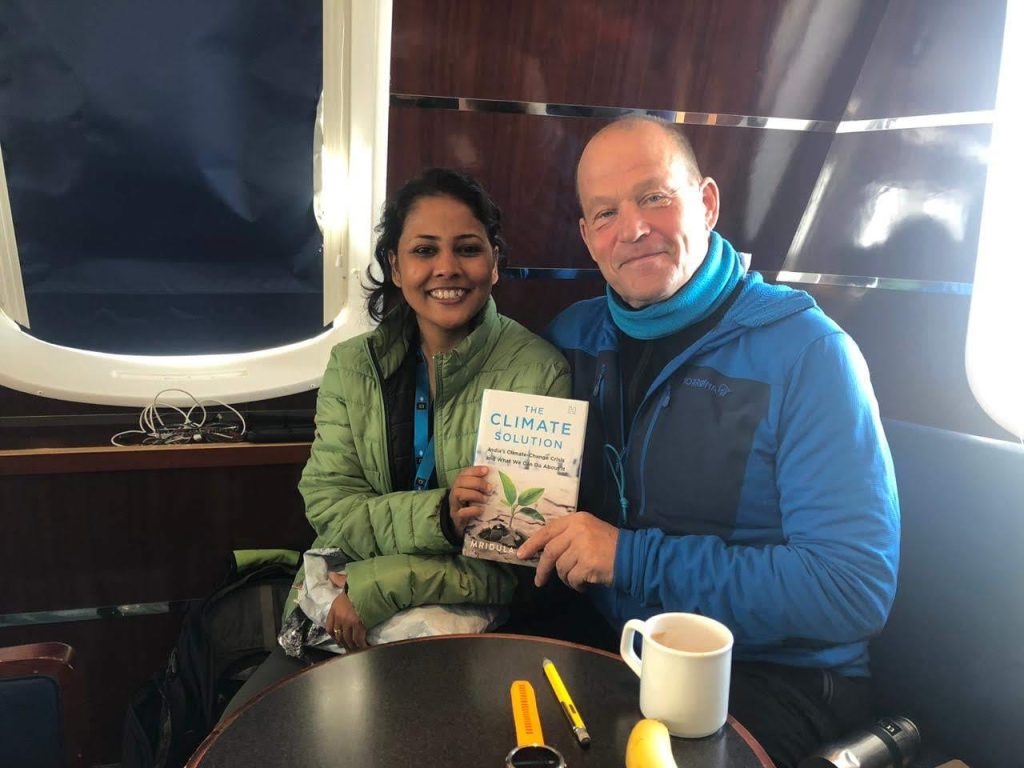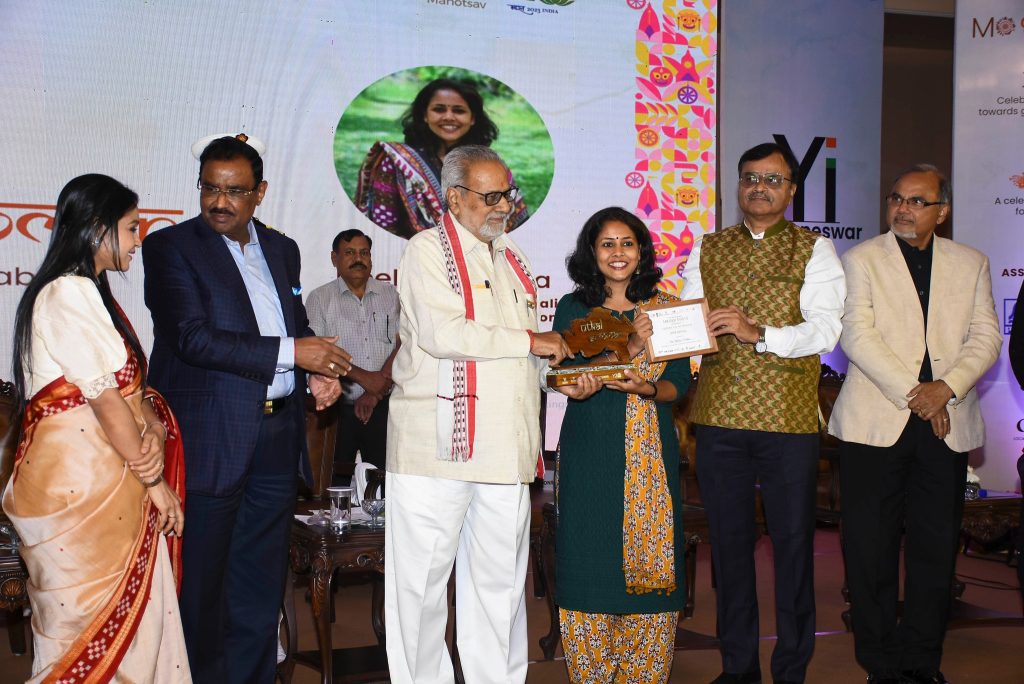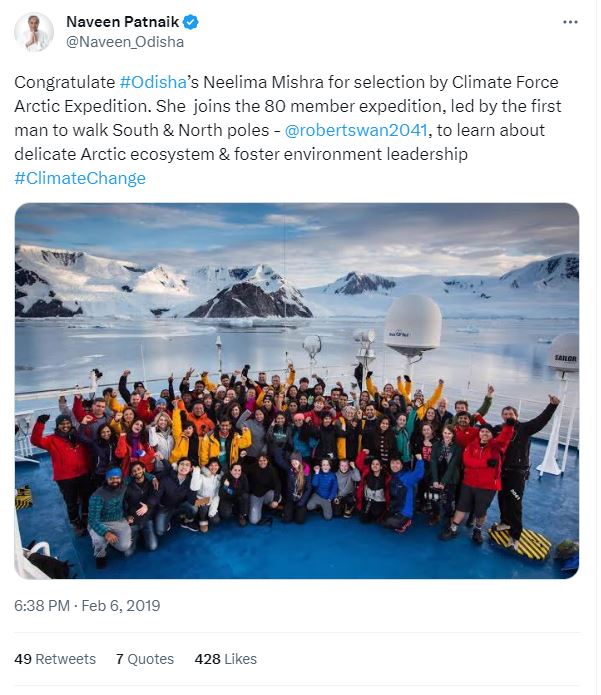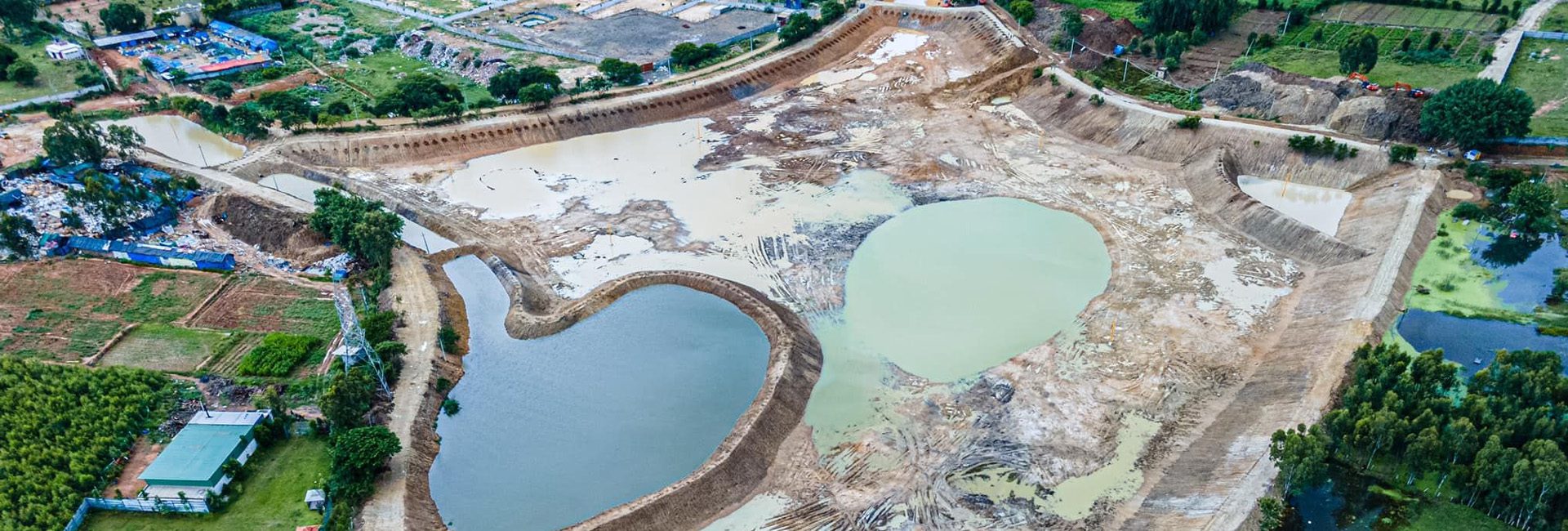(Aug 2, 2023) Neelima Mishra has been a ‘conscious planeteer’ for as long as she can recall. However, one major turning point came through her Arctic expedition, a transformative experience that fueled her desire to fight for the planet’s well-being even more strongly. She went on to found her social enterprise, Ceiba Green Solutions, based in Bhubaneswar, with a primary focus on addressing Odisha’s waste management challenges. Neelima has worked as consultant to the government of Odisha, playing a crucial role in monitoring and evaluating government schemes, as well as leading the expansion of evidence-based programmes. She did her M.Phil at Cambridge University as a Chevening Scholar.
In 2019, Neelima Mishra was chosen from a pool of 5,000 global applicants to be part of an exclusive 80-member team for the prestigious Climate Force Arctic Expedition, organised by US based 2041 Foundation. Unwilling to lose out on this once-in-a-lifetime opportunity, she crowd-funded her expedition.

Neelima Mishra
Under the leadership of Sir Robert Swan (OBE), who is the first person to walk to both the South and the North Pole, Neelima headed to the Svalbard archipelago, some 500 miles from the North Pole towards Norway. Their destination offered an authentic and immersive Arctic experience at the very edge of the habitable world. “The most significant part of the expedition was to see how climate change is impacting us,” Neelima tells Global Indian.
The Arctic experience
The Arctic expedition was as transformative as expected. The team went on long hikes across the Svalbard, rode Zodiacs (small, inflatable boats that transport people on excursions away from the cruise ship), made observation visits and collaborated with scientists from the National Centre for Polar and Ocean Research. “One unforgettable experience was of taking a plunge into the Arctic waters. There’s simply nothing that can compare to the numbing, yet breathtaking experience of immersing oneself in the dark, deep waters of the Arctic,” she recalls.
The beauty of the Arctic was awe-inspiring, but although she was expecting them, the signs of climate change and environmental pollution still caught her off-guard. “A temperature between one to 12 degrees is not what we had anticipated at the Arctic,” she said. “When I was prepared for specialised clothing for sub-zero temperatures, all I experienced was unexpectedly mild weather.”
It was a profound revelation, shedding light on the urgent challenges our planet faces due to climate change, as well as the devastating impact of waste, especially single-use plastics. As she trekked through the highlands, Neelima was taken aback by the sight of plastic cigarette lighters, bottles, bottle caps, toothbrushes, fishing nets, and a host of other discarded materials, even at such high altitudes. It was a stark reminder of the grave consequences of human actions on nature.
Contrary to the perception of harsh and inhospitable climates, Neelima found the Arctic to be home to abundant and diverse creatures, including wildlife, birds, mosses, whales, reindeers, and polar bears, among others. These living beings in such cold regions served as clear indicators of how these regions are getting warmer day by day.
What happens in Arctic impacts the entire Earth
Neelima and her team also observed new sea ice, which is recently formed and more susceptible to melting. “This poses a significant problem because sea ice plays a crucial role as a reflector of the sun’s rays, helping maintain cooler temperatures on our planet. However, if the sea ice melts, temperatures will soar,” explains the environmental enthusiast from Odisha.
“Researchers predict that by 2030, all sea-ice may disappear during the warmest months of the year. As a result, the once-uninhabitable part of the planet will open up to human activities like fishing, shipping routes and other forms of exploration,” she says.
During the expedition, Neelima realized that the impact of climate change is not limited to the Arctic region alone. Changes at the North Pole profoundly impact weather patterns across the planet. “Cyclone Fani in Odisha is a stark reminder of this,” Neelima says. “Cyclones and natural disasters like these have occurred in various parts of India, underscoring the destruction caused by climate change. Although Odisha and the Arctic are miles apart, the weather conditions show a close connection between the conditions at the Arctic and the rest of the Earth,” she emphasizes.

Neelima Mishra with Sir Robert Swan
Stepping into social entrepreneurship
Before embarking on her Arctic expedition, Neelima was already working as a consultant for the Government of Odisha in Bhubaneshwar. When she returned, she found she could no longer ignore the city’s escalating garbage problem, which she encountered on her daily walks to work. She saw the sorry plight of waste-pickers, often children, scavenging through the trash, animals feeding on the litter and the once-pristine cityscape degrading. It sparked in her a deep desire to take action, instead of being a passive observer.
Within just six months of her return, she established Ceiba Green Solutions. The name ‘Ceiba’ is inspired by ‘Semul’, the genus of the Indian red-silk cotton tree, also known as the Indian kapok. As a for-profit social enterprise, the organisation aims to develop feasible solutions and initiatives to combat the mounting waste problem.
For a better life
Ceiba Green focuses on composting solutions, single use plastics through a curated ecommerce store, and waste education. By doing so, it enables people to divert kitchen waste away from landfills, leading to reduced greenhouse gas emissions and the generation of nutrient-rich soil. To raise awareness, Neelima and her team conduct workshops, board games, expos, and outreach activities in collaboration with schools, corporates, and organisations, with the goal of inspiring positive environmental actions.
“We educate people about how waste can be a resource if you segregate it. Waste should be your responsibility, not the responsibility of the municipality,” she tells.
The pandemic placed limitations in their operations, but Neelima and her team saw it as an opportunity. They came up with the idea of the Ceiba Store, an e-commerce platform. “The store serves as a curated marketplace dedicated to promoting re-usable, genuinely bio-degradable and eco-friendly products,” explains Neelima. Through this initiative, she aims to motivate people to shift from a single-use plastic mindset to embracing a reusable lifestyle.
Making impact
Ceiba Green gained recognition in a short span of time, and so has Neelima. Her insights are sought at various platforms. As a participant at the NELIS (Next Leaders Initiative in Sustainability) Asia Summit in Singapore, she engaged in dialogue on various aspects of sustainability, including food, agriculture, water, resources, and energy, throwing light on the growing disparities between developing and developed nations.
Neelima has also served as a mentor at the Circular Innovation Jam 2020, spanning across five countries in South and Southeast Asia. Despite being new in the start-up sphere, she was chosen to guide students, assist them in refining their ideas and foster solutions for a sustainable future.

Neelima receives award from Shri Ganesh Lal, Governor of Odisha
Recently, she received the Utkal Samman award for climate change from the Governor of Odisha. “If you have the right intentions and if you are aware of the consequences of your actions on others, the planet and you, then you are in the right direction,” Neelima says, adding, “Complex environmental issues can be broken up into small yet impactful actions that can be taken on a daily basis.”
- Follow Neelima Mishra on LinkedIn, Instagram and Facebook
- For more information on Ceiba Green Solutions, visit its website





